What is social abuse?


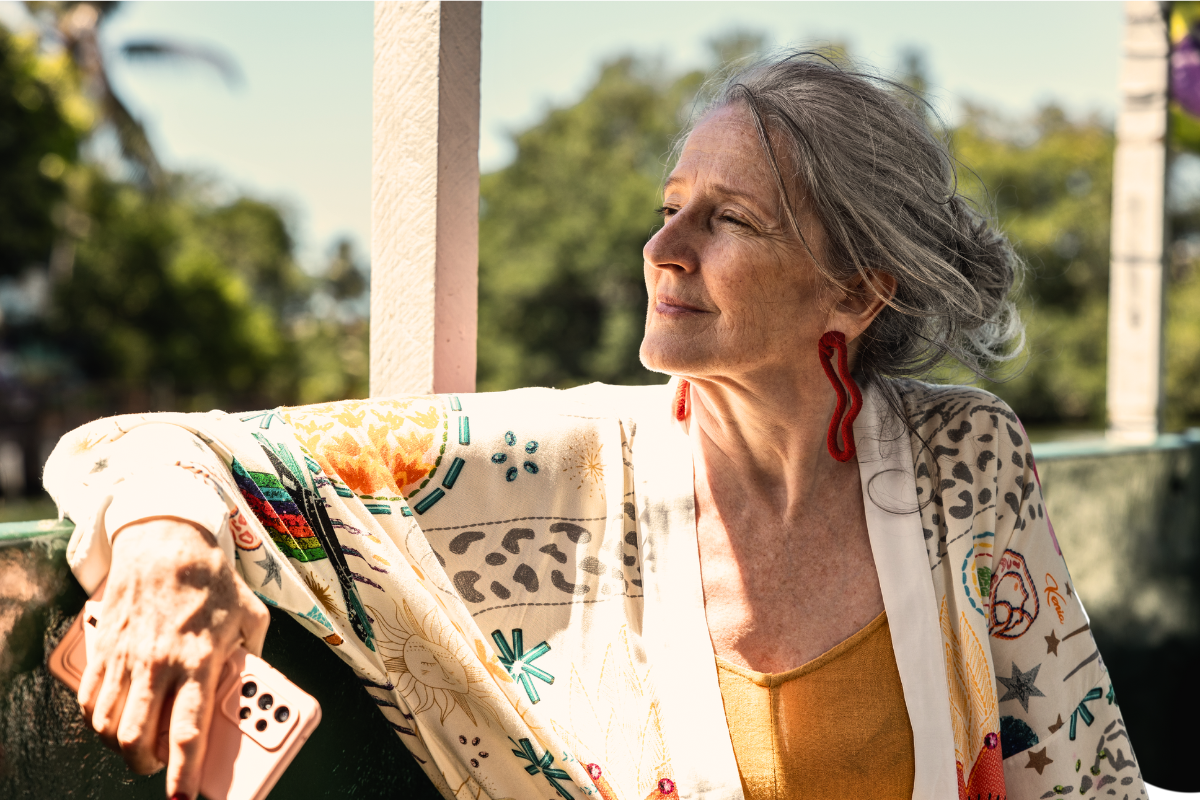
Respect, safety, and dignity are things that all Australians deserve in their relationships with others – regardless of their age.
Elder abuse, or senior abuse, is defined as the mistreatment of seniors by a trusted individual, usually a family member or carer.
It’s important for all of us to be informed about elder abuse and how to seek help when it occurs.
If you’re worried about yourself or an older loved one in your life, we discuss some free options for support and safety.
There are several types of elder abuse, and they can co-exist and overlap.
These are the types of elder abuse recognised in Australia:
Psychological elder abuse is the most common in Australia, followed by neglect.
You can learn more about the signs of specific types of abuse in this article, What is elder abuse?.
Abuse can be a very complex situation. It affects everyone differently, so the signs may sometimes be difficult to spot.
Signs can also be difficult to spot because sometimes, the perpetrator isolates the person they’re abusing. This is especially true in cases where social abuse is present.
Some signs you should check in on an older person might include:
These signs don’t always indicate abuse; they may indicate loneliness or mental health concerns.
Only one in three older Australians who experience abuse seek help.
It’s up to all of us to look out for the older people in our lives. They can be vulnerable to enduring abuse; for example, they may depend on the perpetrator for caretaking.
If you’re concerned about an older loved one, here are some resources you can use:
Here are some tips on how to talk to an older person you’re worried about.
If you or someone you know may be experiencing elder abuse, the Elder Abuse Prevention and Support Service (EAPSS) is here to help.
We provide free support, case management, resources, and referrals to keep you safe and connected.
You can contact EAPSS at 1300 063 232.


Everyone, regardless of age, deserves to feel safe and respected in their relationships.
Emotional abuse against elderly people is a type of elder abuse.
Emotional abuse, also called psychological abuse, can happen in any relationship where there is an expectation of trust. In the case of older people, the abuser may be a spouse, adult child, grandchild, carer, family friend, or neighbour.
In this article, we’ll discuss some signs of elderly emotional abuse to look out for in your older loved ones and free support options.
When someone is experiencing emotional abuse, they may become socially withdrawn from their family, friends, and community.
Often, an abuser will aim to socially isolate their victim to remove outside influences and make them more dependent on the abuser. Older people who rely on someone else for care and support are especially vulnerable.
The older person may also withdraw from their family and friends due to the shame, fear, or low self-esteem that the abuse is causing them.
Social isolation is dangerous for older people. It’s linked with increased risks of serious conditions such as dementia, premature death, and depression. If you notice an older loved one being more withdrawn than usual, reach out and check in on them. Here are some tips to talk to an older person you’re worried about.
Emotional abuse can take a huge toll on someone’s mental health. Abuse in older people is highly associated with depression.
Signs of depression caused by emotional abuse may include:
Signs of anxiety caused by emotional abuse may include:
Outbursts of anger can be a sign of being abused.
A person experiencing abuse may bottle up their emotions due to fear of expressing or communicating them. Bottling up can make a person easily irritated. Seemingly “normal” or “small” things may elicit an unbalanced response of anger.
These emotional outbursts should be responded to with gentle understanding. It may be a helpful approach to ask if there’s anything else going on that they want to speak about.
Emotional abuse can cause someone’s self-esteem to plummet, especially in the case of older people who often depend on their abuser or who may not have many other people in their life.
Signs of low self-esteem can include self-deprecating talk, poor self-care, and not accepting or asking for help.
Sometimes emotional abuse can wear someone down to seem like a “shell” of their normal self. They may seem uninvolved, uninterested, and unfazed.
Emotional abuse is damaging for anyone’s mental health, no matter how old they are. It’s important to be supportive and to continue reaching out to someone who you’re worried about.
If the older person seems to get worried or anxious before, during, or after being around a certain person, it may indicate that they feel unsafe around them. They may behave like they’re walking on eggshells.
If you’re worried that someone is perpetrating elder abuse, here are some actions you can take if it’s safe to do so:
The Elder Abuse Prevention and Support Service (EAPSS) helps older Queenslanders who are experiencing elder abuse. EAPSS provides free counselling, legal aid, referrals, and intervention services.
If you’re worried about yourself or an elderly loved one, you can call 1300 062 232 to learn more.
Here are some ways to help an older person you’re worried about.
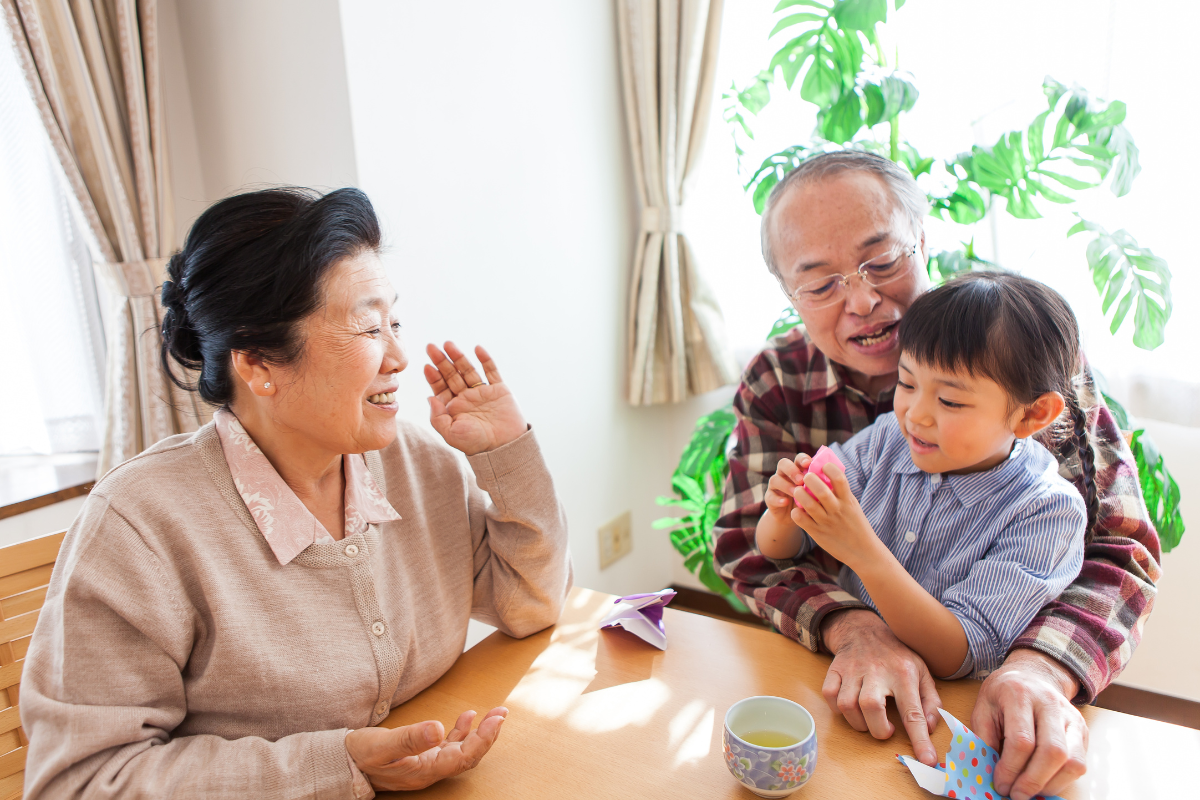
Grandparent alienation is when grandparents are unreasonably denied the opportunity to see and communicate with their grandchildren.
The relationship between a grandparent and a grandchild is irreplaceable – understandably, it hurts when you’re prevented from seeing or talking to them. A rocky relationship with your adult child or whoever is causing the alienation can add to the distress.
In this article, we share advice on what you can do if you’re experiencing grandparent alienation and briefly discuss grandparent rights in Queensland.
Sustained grandparent alienation is a form of elder abuse. Adult children are usually the perpetrators of grandparent alienation.
Behaviours of grandparent alienation include:
It’s important to consider that not all situations point to grandparent alienation. For example, parents seeking a period of alone time with a newborn baby is a special circumstance – it doesn’t necessarily indicate that they’re intentionally separating you from your grandchild.
This form of elder abuse can be distressing, and you might feel like you don’t know what to do.
Every situation is different. But moving forward is possible, even when it may not seem like it.
Your conflict resolution plan may include:
Usually, people prefer to come to an agreement themselves before seeking professional or legal intervention.
An open, honest conversation can have a huge impact. Establish a safe time and place to have this talk. Honesty, empathy, active listening, taking accountability, and a willingness to compromise are building blocks of effective communication.
We share more advice on resolving conflict with your adult child here.
Though grandparent alienation directly concerns your grandchildren, it’s best not to get them caught up in this disagreement.
We recommend avoiding criticising or talking badly about the parents to your grandchildren.
Mediation is a professionally guided meeting that allows families to resolve conflict and agree upon a solution to move forward together. Mediation is a safe space that encourages healthy communication.
Attending mediation allows grandparents to be able to apply for parenting orders.
The Senior Relationship Mediation Service (SRMS) is a free service for seniors and their families in Queensland. The SRMS can intervene and provide support and referrals in cases of elder abuse. To learn more, contact the SRMS at 1300 062 232.
Healthy, respectful grandparent-grandchild relationships can benefit the whole family. Australian family law recognises the importance of children’s relationship with their grandparents.
Grandparents can apply for a parenting order through a family law court. This means that a family law court can order for a child to live, spend time with, and/or communicate with a grandparent, provided it’s in the child’s best interest.
Grandparents cannot apply for parenting orders through the family law court unless they have tried mediation.
You can learn more about grandparent rights and options on the Federal Circuit and Family Court of Australia website.
If you don’t feel safe in having a conversation or making amends on your own, you may be experiencing elder abuse.
It’s critical to lean on your support networks and to look after yourself.
Be gentle with yourself and have self-compassion. Remind yourself that being abused is unacceptable – no one deserves it. The way others treat you is not a reflection of your worth.
Know the signs of elder abuse and stay connected with other family members and friends.
We provide more advice on how to cope with abusive adult children here.
If you’re experiencing grandparent alienation and are concerned about elder abuse, support is available.
The Elder Abuse Prevention and Support Service (EAPSS) assists older Queenslanders and prioritises their rights, safety, and wellbeing. EAPSS provides counselling, legal aid, referrals, and intervention services. Call 1300 063 232 to learn more.
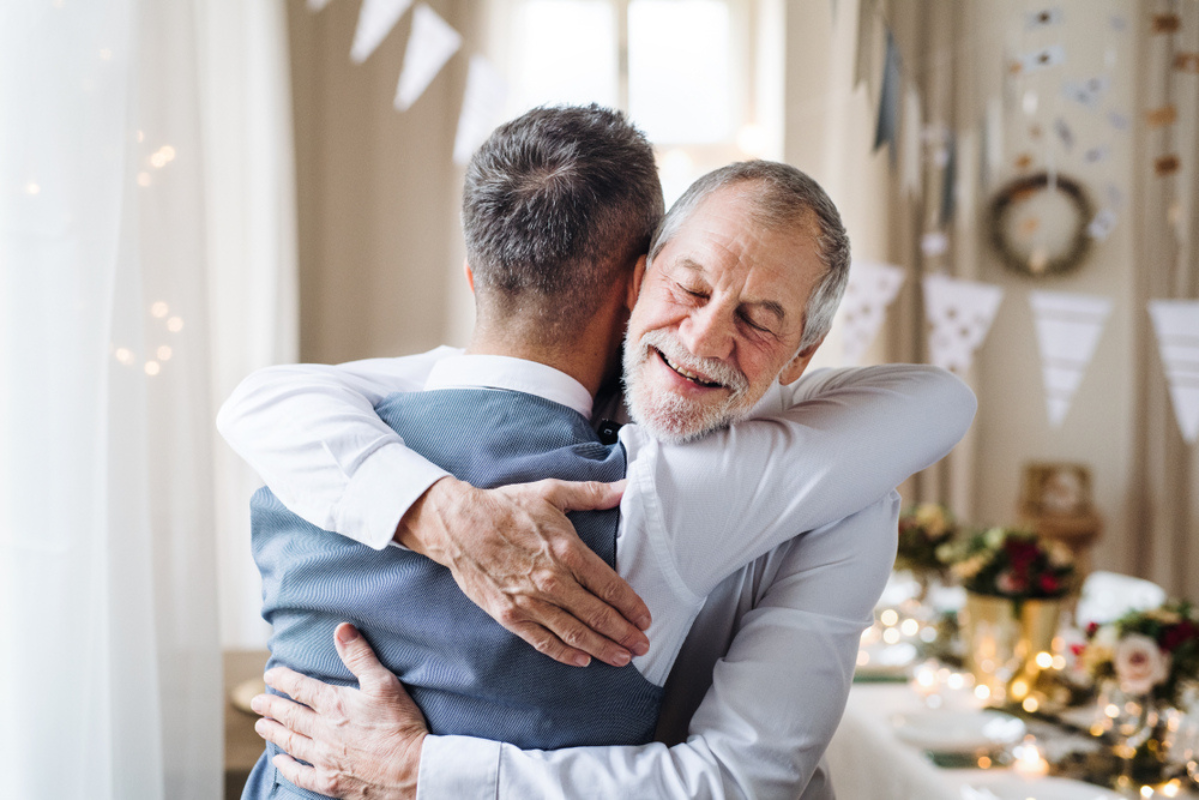
Elder abuse is any abuse against a senior or an older person. If you’re an older person who is feeling unsafe in any of your relationships, you may be experiencing elder abuse.
We provide free support for people in Queensland experiencing elder abuse. You can contact the Elder Abuse Prevention and Support Service (EAPSS) at 1300 062 232.
Worried about an older friend or family member? You may also contact our hotline if you’d like to confidentially report elderly abuse.
Signs that someone is being abused can be hard to pinpoint. It’s not always as straightforward as physical injuries, especially since there are different types of elder abuse.
Elder abuse may be psychological (also called emotional abuse), financial, sexual, or physical. Neglect and coercive control are also forms of abuse.
Psychological elder abuse is a series of actions and behaviours that intimidate the older person.
Coercive control is a specific type of psychological abuse. Coercive control is when the abuser exerts power over the victim. Older people are especially vulnerable to this type of abuse.
Financial elder abuse occurs when a trusted person takes advantage of an older person for financial gain. Financial abuse is the most reported type of elder abuse in Australia.
One in six Australian seniors report facing elder abuse in the past year.
Abuse doesn’t discriminate – anyone can find themselves in an abusive situation. Being abused doesn’t define you or change your value.
Certain risk factors can make an older person more vulnerable to experiencing abuse.
Risk factors for elder abuse include:
Men and women experience elder abuse at nearly the same rate.
In Australia, one in two perpetrators of elder abuse are a family member of the victim.
The most common perpetrators of elder abuse are the older person’s adult children or children-in-law.
Friends, neighbours, other family members, caretakers, and service providers are also commonly reported as perpetrators in cases of elder abuse in Australia.
72% of victims of elder abuse reported that their main perpetrator suffered from problems of their own – typically mental health issues, financial problems, and physical health problems.
Certain lifestyle habits can help protect yourself or an older loved one from experiencing elder abuse.
These tips can help protect someone from elder abuse:
We provide more information about protecting yourself from elder abuse in this blog post.
The Elder Abuse Prevention and Support Service (EAPSS) provides free counselling and resources for seniors in Queensland. We can help explore your concerns and possible solutions in a safe, supportive environment.
You may also contact our hotline if you are worried about someone else or to confidentially report elderly abuse.
You can learn more about our Elder Abuse Prevention and Support Service here, or call 1300 063 232.

Everyone, regardless of how old they are, deserves to feel safe and respected in their relationships.
If you’re feeling unsafe or scared around a specific family member, partner, friend, or caretaker, it’s critical to reach out for help. If there’s an older person you’re worried about, you may wish to reach out for help on their behalf or report the senior abuse they’re experiencing.
What happens when you reach out for help concerning elder abuse? In this article, we’ll outline what to expect when you contact our Senior Relationship Services hotline. To reach out for help or to report elder abuse in Queensland, please call the free Senior Relationship Services at 1300 262 032.
When you’re experiencing abuse, reaching out can be hard – we understand, and support is available.
Our Elder Abuse Prevention and Support Service (EAPSS) is a free service for seniors in Queensland. EAPSS provides support and assistance to those at risk of, or currently experiencing, elder abuse. This service offers individualised support and referrals.
EAPSS supports folks 60 or older who live in Queensland and are at risk or experiencing elder abuse (or 50 or older for First Nations Peoples).
Here’s what happens when you reach out for help for elder abuse with the free EAPSS:
Reaching out for help about abuse can feel difficult or scary. Here are some tips from our SRS case managers for your first call with our elder abuse hotline:
Thank you so much for helping. I feel like I can breathe a little. I really appreciate your help as I have never been in this situation before.
-EAPSS Client in Gladstone, QLD
Thank you so much, you understood what I was going through and were there for me. I now have a nurse who contacts me once a month. Your team was so nice to me, too.
-EAPSS Client in Mackay, QLD
My case manager helped so brilliantly. It seems like she’s the perfect person for the job.
-EAPSS Client in Gladstone, QLD
When I first spoke to you two years ago, I had already called six different organisations – you were the first who was able to point us in the right direction.
-EAPSS Client in Rockhampton, QLD
I’m doing well – trying to be strong with boundaries. I understand that my personal journey in healing will be a long one and I can’t heal if I keep letting the same things happen. You have been incredible; you saw me through some of the hardest weeks of my life and I’m so very grateful for that. I’m still seeing a trauma therapist every week, which is giving me new skills.
-EAPSS Client in Gold Coast, QLD
Elder abuse is any abuse against an older person. Elder abuse may be:
Financial abuse is the most common type of elder abuse.
Some signs of elder abuse include:
You can read more about the signs of elder abuse.
If you or an older loved one are experiencing elder abuse, the Elder Abuse Prevention and Support Services (EAPSS) provides free counselling and safety resources for seniors. Ring our senior abuse hotline for a free, confidential chat at 1300 262 032.

When your children become adults, it’s natural for your roles in each other’s lives to change.
Boundaries are like guidelines that keep our relationships with loved ones balanced, healthy, and safe.
If you’re feeling stress, strain, or dissatisfaction in your relationships with your adult children or grandchildren, it may be time to set some boundaries.
In this blog post, we’ll review signs it’s time to set boundaries, how to set boundaries with your adult children, and examples of healthy family boundaries. We’ll also explore some signs of elder abuse and the support that is available.
It might feel harsh to think about setting boundaries, but boundaries can improve your relationship and how you feel about each other.
Setting boundaries is a strong sign of self-respect, self-compassion, and self-advocacy.
It’s common for seniors to feel that their children are overly involved in their lives. Here are some signs that you should consider setting boundaries:
It’s important to communicate your boundaries clearly and respectfully. Here are some tips for talking to your child about your boundaries:
Boundaries may be financial, physical, or related to communication or caretaking.
Here are some examples of healthy boundaries to set with your adult child:
Every family has its issues sometimes; disagreements are normal. But it’s important to be aware of signs for when the situation is becoming abusive.
Unfortunately, adult children are the most common perpetrators of elder abuse. Here are some common behaviours of elder abuse:
It might feel scary when your own child is the one abusing you, especially if you depend on them.
Sometimes elder abuse is unintentional and can stem from their own issues. However, whether it’s on purpose or not, abuse is never okay.
Everyone, regardless of age, deserves to feel safe with their family. Learn more about the signs of elder abuse.
The Senior Relationship Mediation Services (SRMS) can help you resolve family arguments, set boundaries, and find a clear path to move forward in a healthy relationship with your adult child. The SRMS is a free service which prioritises the wellbeing of the older person and helps your family establish a way forward in a safe environment.
If you’re worried you may be experiencing elder abuse, the Elder Abuse Prevention and Support Services (EAPSS) provides free counselling and safety resources for seniors. EAPSS is a free service which offers individualised support, case management, and referrals for older folks in Queensland.
You can connect with the Senior Relationship Services at 1300 063 232.
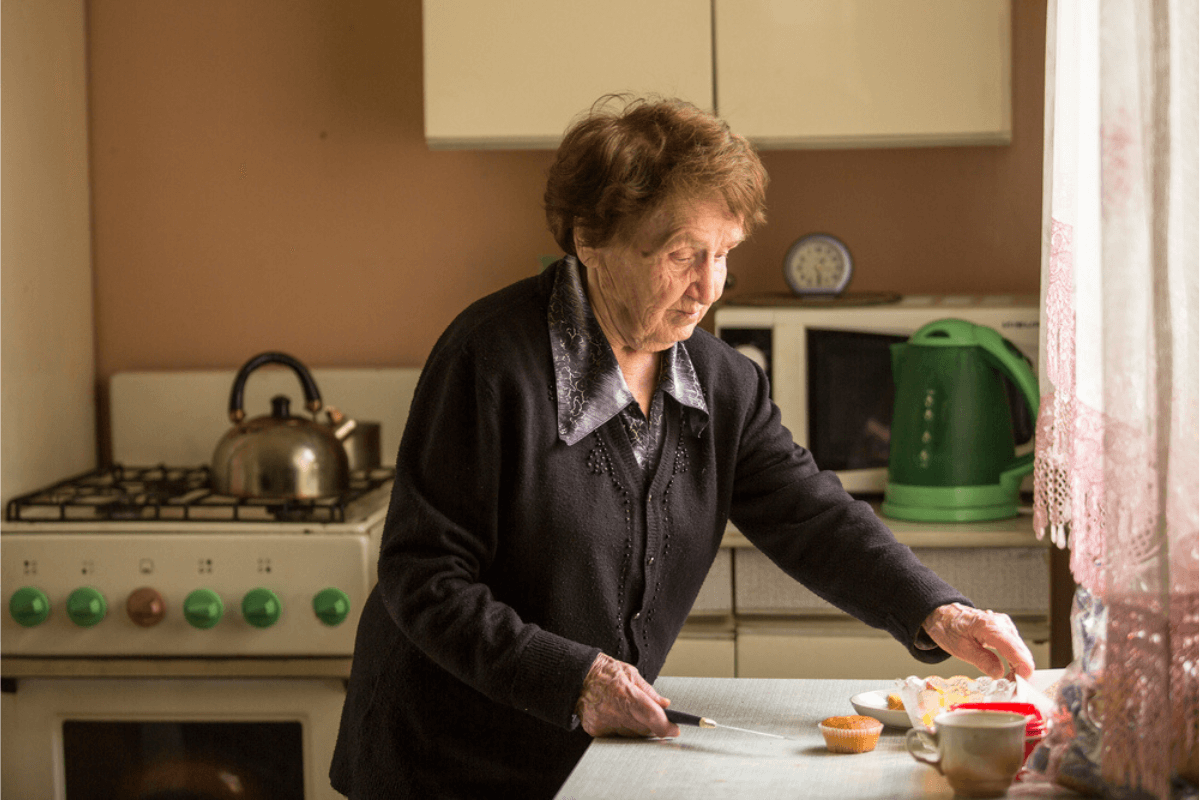
Are you worried that an older loved one is lonely?
Our relationships are critical to our health and wellbeing. Staying socially connected can help us live longer, happier lives.
Social isolation includes a lack of social contacts or relationships, little to no engagement with other people, and limited opportunities for socialising.
Older adults are at high risk for social isolation due to factors like limited mobility, loss of family and friends, and living alone. Social isolation can lead to loneliness, which can be detrimental for elderly folks.
In this blog post, we’ll review how social isolation causes loneliness and is dangerous for older people. Whether it’s your grandparent, your elderly parent, or your older neighbour or family friend, we’ll share some ideas on how you can help a socially isolated older person.
One in five Australian seniors are socially isolated; this rises to one-third of adults living in residential aged care.
Older folks are at increased risk of social isolation if they:
Social isolation can cause people to feel lonely. Social isolation and loneliness can seriously impact an older person’s mental and physical health, quality of life, and longevity.
When seniors are socially isolated, they face:
It’s up to all of us to help the older people in our lives.
If you’re worried that a senior in your life is lonely, there are a few ways you can help.
Here are some ways you can help an older person who seems lonely:
The Senior Social Connect Program offers groups and events specifically aimed at reducing social isolation in older Queenslanders in Sunshine Coast and Gympie.
The Queensland Government website has a list of social groups and activities for seniors.
Relationships Australia Queensland’s Senior Social Connection Program helps older Queenslanders in Sunshine Coast and Gympie to stay connected.
If you or an older person you know is feeling lonely or socially isolated, our Senior Relationships Services are here to help. Our experienced counsellors can help you explore your concerns and possible solutions in a safe and supportive environment.
You can learn more about our Senior Social Connection Program here or by calling 1300 063 232.
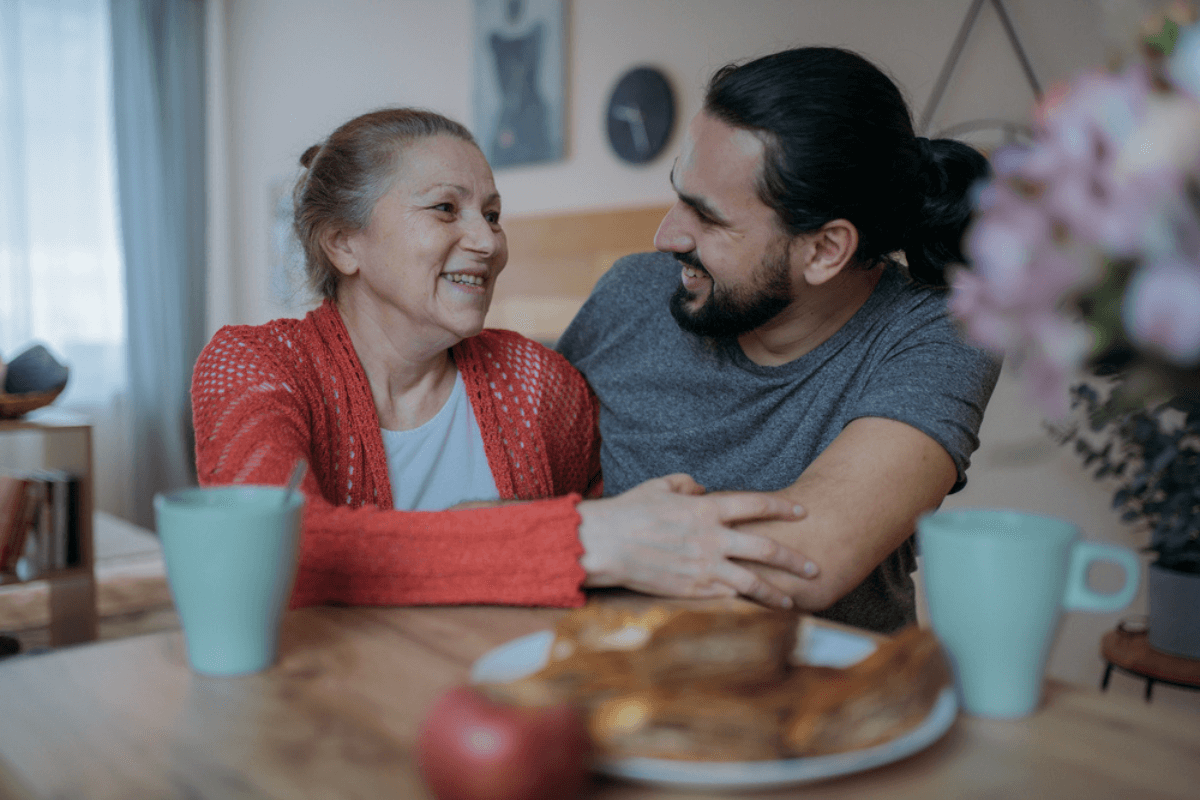
When your children grow up, it’s natural for your relationship with them to change.
However, if you’re arguing or experiencing conflict with your grown children, it can feel upsetting. You may feel disrespected or that your wants and needs aren’t being honoured.
In this blog post, we offer some tips on resolving conflict between you and your adult child, as well as how to identify elder abuse.
Time and place are critical when having a difficult conversation.
It’s ideal to start the conversation when both of you have enough time so that nobody feels rushed.
Sensitive conversations should be had somewhere private and comfortable for both parties. You may prefer to speak somewhere neutral, like a café or on a park bench, instead of one of your homes.
Here are a few tips for healthy, effective communication:
Here is a resource about positive communication with family members.
Take the time to calmly explain how the conflict is affecting you. Listen and pay attention to your adult child’s point of view, too.
By having an open, honest conversation, you may learn something new about each other and can make headways in resolving your disagreement.
Boundaries establish how you’d like to be treated by others and how much you’re comfortable contributing to a relationship. They protect us emotionally, mentally, and physically.
Boundaries can be based off other people’s behaviours which make you uncomfortable. These behaviours may include unexpected visits to your home, phone calls at inappropriate times, or being asked to borrow money.
Examples of boundaries with adult children may include:
Compass offers a guide on setting boundaries with adult children and grandchildren.
Self-compassion can protect your mental health when you’re in the middle of a conflict with your adult child.
Your value doesn’t change because of your age or because your children are adults now. In fact, age brings many strengths, like wisdom and experience.
Your age is no excuse for someone to treat you differently – the mistreatment of older folks because of their age is called .
Mediation is a professionally guided meeting which helps families when they are arguing or having problems.
Family mediation provides an opportunity for open, honest conversations in a safe environment under the guidance of a mediator. Families can learn healthy ways to manage disagreements and develop plans to move forward from problems they may be having.
You can learn more about family mediation for older people and their families in our blog post, What is family mediation?.
If you feel unsafe doing any of the recommended conflict resolution tactics above, it’s important to learn the difference between a typical disagreement and elder abuse.
Adult children of the elderly victim are the most common perpetrators of elder abuse.
You may be experiencing elder abuse if:
You can learn more about abuse against older folks on our Understanding Elder Abuse page. The Elder Abuse Prevention and Support Service (EAPSS) is here to support seniors in Queensland.
If you or an older person you know are in a conflict with an adult child, our experienced counsellors are here to help. We can help you explore your concerns and possible solutions in a safe, supportive environment.
You can learn more about our Senior Relationship Mediation Service here, or by calling 1300 063 232.